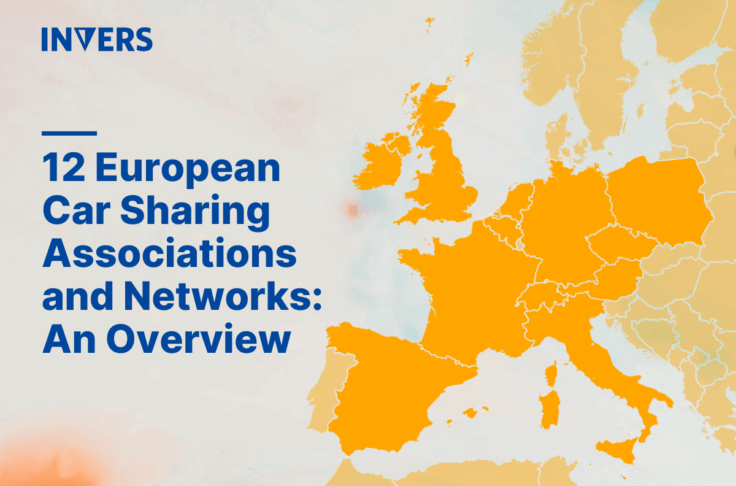
INVERS increases focus on developer community
- Connected vehicle API to underline vehicle and telematics agnostic approach
- Powerful fleet management software to scale and expand
- Extensive partner network for booking software as well as consulting services and source code for developers to build their own solutions
Siegen, Germany, 19. November 2020 – INVERS will be shifting its product development focus to further meet the needs of developers worldwide, offering shared mobility operators tech infrastructure and building blocks for the development of reliable and scalable solutions for shared mobility operations. The aim is to deliver technology solutions that provide operators the flexibility to select the best vehicles for their fleet irrespective of technical restrictions. They should be able to adapt their software setup at any time and grow and innovate with any business model. In this way, INVERS will support operators in making shared mobility services an affordable and convenient alternative to owned vehicles.
In order to succeed as an operator in the growing and highly competitive shared mobility market, a flexible, scalable and reliable tech infrastructure is needed, which must meet three main requirements:
First, the tech infrastructure has to easily integrate all types of vehicles and models. The INVERS telematics, CloudBoxx, already offers easy deployment with a set-up app including individual vehicle configurations. „Our in-house experts use a machine learning vehicle analysis tool to review specific vehicle data, relevant for running shared mobility“, says Alexander Kirn, CEO of INVERS. „Up to now, we have already analysed more than 640 vehicle models that we support out of the box. However, we can basically integrate any vehicle from scooter to Tesla.” In addition, INVERS will grow its network of partners for telematics. The Connected Vehicle API will enable the seamless integration of any telematics and especially of OEM connected vehicles ex-factory as these are introduced on a larger scale. Operators can use the INVERS infrastructure as a uniform solution for managing their entire shared fleet, regardless of the type of vehicle.
Second, a powerful and scalable fleet management software is needed. Operators only want to use one tool to manage their entire fleet. FleetControl enables operators to connect, configure and control their fleet quickly and easily, all from one place. It allows for remote vehicle troubleshooting and managing vehicle maintenance across cities. Additionally, FleetControl includes a built-in business intelligence dashboard that provides in-depth insights into the connected fleet data, enabling operators to optimize their fleet management, maximize utilization and co-share assets.
Booking software is the third key to success, as it defines the core business operations processes as well as the user experience. This is where the differentiation potential lies for operators to focus on. With the flexible tech stack, operator can choose the optimal booking software from INVERS’ 15+ integration partners to offer the right mobility service at the right time with a unique customer experience. Alternatively, operators can develop their own booking solution. Therefore, INVERS offers consulting services from experienced developers of the discontinued booking solution InstaFleet. Its source code as well as software components are available as technology building blocks to provide developers a head start in building their own shared mobility software, whether it is for an operator or a white label software solution provider. This strategy reinforces INVERS‘ neutrality towards partners and its dedication as consultants, providing customers with options that best fit their needs.
About INVERS
INVERS, the inventor of automated vehicle sharing, enables mobility service providers to launch, operate and scale their offerings with the first and market-leading shared mobility operating system. As the world’s first shared mobility technology company, INVERS has the longest experience in the market and acts as an independent and reliable partner for operators of shared mobility solutions such as car sharing, scooter sharing, ride pooling and car rental. INVERS continuously researches innovative technologies in order to further shape the future of mobility. With its Shared Mobility OS, INVERS offers a modular full-stack solution with which mobility providers around the world can quickly and reliably scale their operations.
Well-known brands that have implemented their services with INVERS technology include Clevershuttle, Miles, Getaround and Flinkster, and since 2015, companies from the micromobility sector, such as scooter sharing companies such as TIER and Emmy. The company was founded in 1997 and has locations in Siegen, Cologne and Vancouver. The technological development takes place entirely in Germany. www.invers.com


